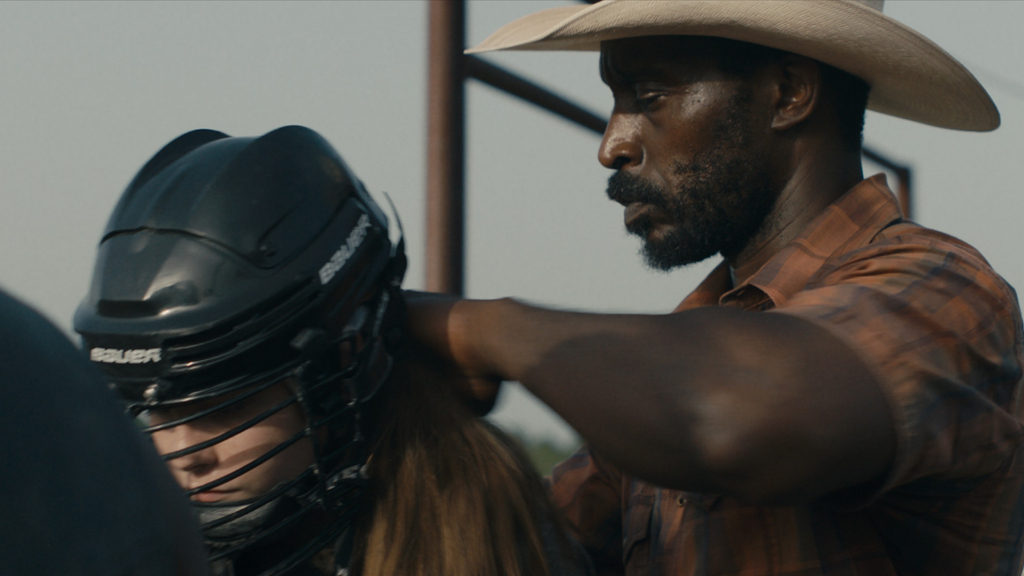Bull

The rodeo is defined by competition and spectacle. Riders have a dual role: winners and entertainers. If the body doesn’t hold up, the mouth takes its place. Crowds bray for swivelling torsos and crass one-liners. Fall off the bull and pick up the microphone. Pray for your teeth once you’ve hit the floor. From cowboy to clown, the next fall is worse: from clown to corpse, from apparent choice to indefinite retirement.
Annie Silverstein’s Bull illustrates the rodeo death drive through two neighbours: 14-year-old Kris (Amber Havard), without fortune or functioning family, and 50-odd Abe (Rob Morgan), a man on the tail-end, slowly spiralling someplace, wherever painkiller and alcohol addiction leaves you. One will inevitably tutor the other. But questions of who holds authority are allowed to shift, to be rendered unclear. The course to redemption is often ambiguous when taken in tandem.
Both protagonists are defined in their origins: Kris’s mother is in a state penitentiary, bound up with a cycle of violence. Her grandmother, well-intentioned and debilitated, exists on a supply of insulin injections. Her younger sister is a further burden, willingly loved but heavy to hold, a new frontier of financial angst. They all look remarkably alike.
Abe, meanwhile, comes from riding stock: his father’s demise under the bull becomes a transferred ambition, a genetic likelihood, a socially indelible determinism. Sheila (Yolonda Ross), an ex-lover still in love, suggests this path is without virtue or value. As a person of colour in the South, Abe’s race functions at the edge of his private and professional dealings. One moment acutely shows his anger along with a realisation: that he’s a black man holding a white child, and this child is screaming.
For these characters crime and poor health constitute a state of nature and a sense of destiny. The outskirts of Houston offer a setting of relative poverty: people subsist, just about. Income is topped up through dubious means – the slippery slope of selling drugs to selling sex is foregrounded, the insidious mechanisms marked and traced throughout. There’s a suggestion that the rodeo is a righteous alternative amid the visceral fright of the relentless buckaroo.
Like many first features, Bull relies heavily on symbolism and motif to make its points: the ravaged chickens, the bulldog and the bull, a cross that’s lingered on. Gestures to metaphor are immediate, repeated and justified through earnest, serious-minded dialogue. But this remains finely made work; the viewer is invited to use different ways of looking and to be made uneasy by a relationship shot through a vexed and inconsistent hierarchy.
Chloe Zhao’s lauded The Rider detailed the push-pull of the rodeo, the lasso that tightens around the neck, beckoning and suffocating. Silverstein’s approach is perhaps too studied to yield a similarly consuming narrative, but there’s a steady, predictable flow that unpicks the processes of decay and the morally uncertain shoots of hope. To ride the bull and to dodge out of the way, the mind slows things down even as the body deteriorates.
Joseph Owen
Bull does not have a UK release date yet.
Read more reviews from our Cannes Film Festival 2019 coverage here.
For further information about the event visit the Cannes Film Festival website here.
























Facebook
Twitter
Instagram
YouTube
RSS